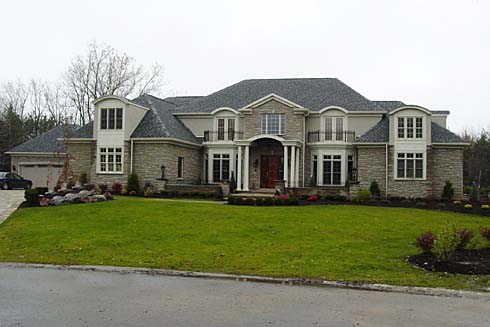FREEHOLD
Understanding Freehold Estates in Real Estate
Unveiling the Essence of Freehold Estates
Definition
A freehold estate, within the context of real property, refers to an estate that endures for an indefinite period. Unlike leasehold estates, which have a predetermined lease term, freehold estates encompass a sense of perpetual ownership, allowing the holder to retain the property for an unspecified duration.
Characteristics
Key characteristics of freehold estates include the absence of a fixed expiration date, providing the owner with the freedom to possess and utilize the property without temporal constraints. This enduring nature of freehold estates contributes to their intrinsic value and long-term significance within the real estate landscape.
Inheritability of Freehold Estates
Inheritable Estates
Freehold estates can be categorized into inheritable and non-inheritable estates, based on their transferability to heirs. Inheritable estates encompass the fee simple absolute, the qualified fee, and the fee tail. These estates possess the quality of being passed down to heirs upon the owner's demise, ensuring the continuity of property ownership across generations.
Noninheritable Estates
Noninheritable Estates
Conversely, noninheritable estates include various life estates, such as ordinary life estates, dower, and curtesy. These estates are either created by the acts of parties or by operation of law, and they do not possess the same inheritable attributes as their counterparts. Noninheritable estates are typically limited in duration and do not perpetuate through generations in the same manner as inheritable estates.
Implications in Real Estate
Long-Term Ownership
The perpetuity associated with freehold estates underscores their significance as a form of long-term ownership within the real estate domain. Property owners holding freehold estates are afforded the opportunity to establish enduring roots within their properties, fostering stability and continuity in their real estate holdings.
Investment Potential
The inheritable nature of certain freehold estates, particularly the fee simple absolute, enhances their appeal as viable investment assets. The assurance of passing down property to heirs and the potential for long-term appreciation make inheritable freehold estates an attractive proposition for individuals seeking to build and preserve wealth through real estate investments.
Conclusion
Freehold estates represent a cornerstone of real property ownership, embodying the principles of enduring tenure and perpetuity. Their delineation into inheritable and non-inheritable estates further underscores the nuanced nature of property rights and transferability. As a fundamental component of real estate law, freehold estates continue to exert a profound influence on property ownership, inheritance, and investment strategies, shaping the fabric of the real estate industry for generations to come.
MORE REAL ESTATE TERMS
A, B, C, D, E, F, G, H, I, J, K, L, M, N, O, P, Q, R, S, T, U, V, W, X, Y, Z
Featured New Home

Featured Mortgage Brokers
- UNION MORTGAGE GROUP, INC., GREENBELT, MD
7501 GREENWAY CENTER DR
GREENBELT, MD 20770 - GATEWAY FUNDING DIVERSIFIED MTG SRVS LP, CARMEL, IN
600 E CARMEL DR STE 169
CARMEL, IN 46032 - TOP FLITE FINANCIAL INC, FORT LAUDERDALE, FL
33 NE 2ND ST STE 100
FORT LAUDERDALE, FL 33301 - CATALYST LENDING INC, GREENWOOD VILLAGE, CO
6530 S YOSEMITE ST STE 310
GREENWOOD VILLAGE, CO 80111 - PRIMELENDING A PLAINSCAPITAL COMPANY, NORTH SYRACUSE, NY
6702 BUCKLEY RD STE 140
NORTH SYRACUSE, NY 13212